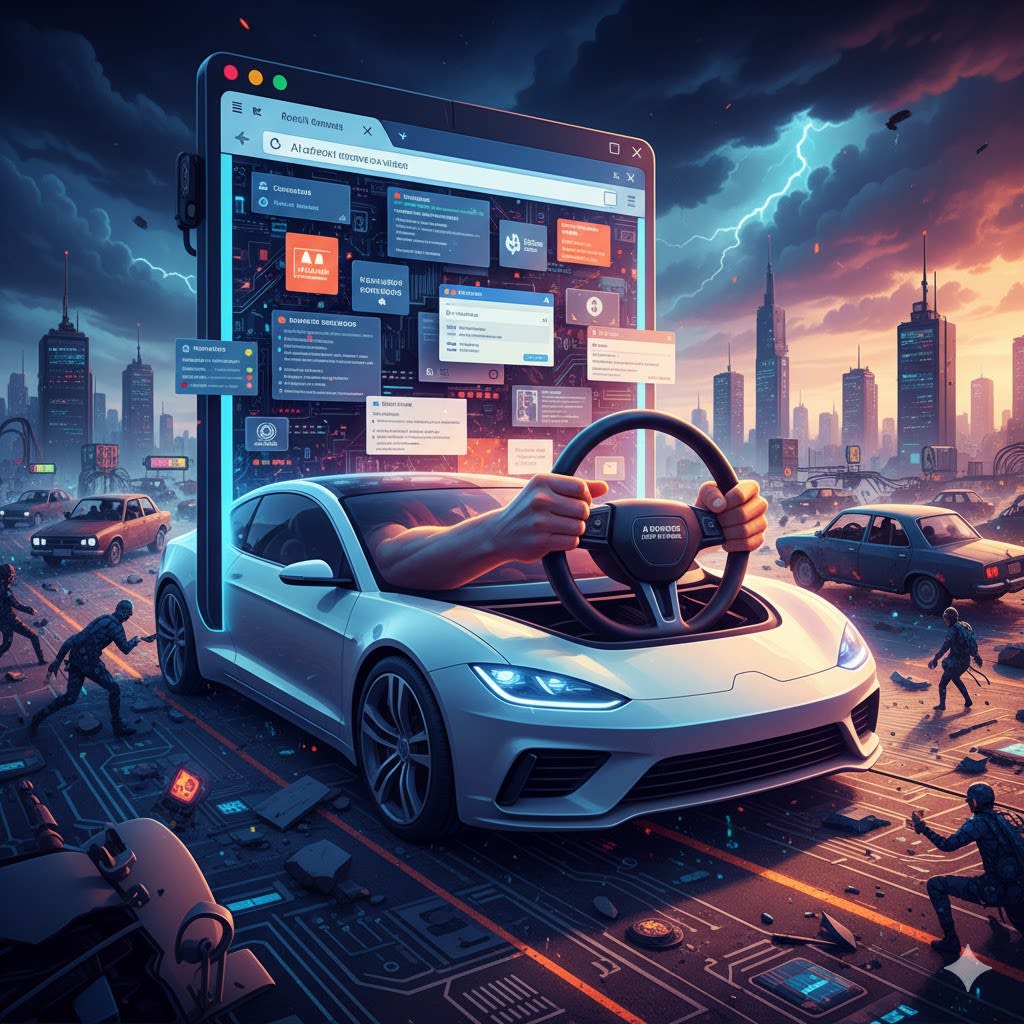When OpenAI (or any tech giant, really) launches something new, the world usually takes notice. Their recent foray into a dedicated AI browser has certainly generated buzz. And they join other players like Perplexity who already have their own browsers. What do I think about all these launches? One word: Meh.
I think the concept of an AI browser is fundamentally flawed, and here’s why:
It reminds me a lot of self-driving cars.
My core issue with AI browsers, those tools that promise to automate your online tasks, summarize long articles, or even perform complex research for you is the edge case problem.
Think about self-driving cars. For over fifteen years, we’ve been promised they are just around the corner, yet they remain niche. Why? Because the roads weren’t built for a perfectly logical, binary-thinking machine. They are populated by human drivers who speed, ignore signals, swerve, get angry, and generally behave in unpredictable ways. A self-driving car only works perfectly if all the other variables are also perfect and they never are.
The internet is the same. It’s not a tidy, predictable highway. It’s a chaotic, constantly updating, and incredibly human-driven landscape:
Website Updates: A site changes its layout or code. Your AI routine breaks.
Pop-ups and Cookies: The constant barrage of ‘Accept Cookies’ or ‘Sign Up for our Newsletter’ dialogs are edge cases the AI has to correctly interpret every time in a new configuration.
Nuance of Search: Often, the best results aren’t at the top of a summary; they require subtle judgment calls, like distinguishing an opinion piece from a factual report, or knowing a company’s past reputation.
An AI browser is designed for a pristine, logical internet that simply doesn’t exist. Maybe in the future some protocols will be defined for AI agents to talk to each other and get some tasks automated. But AI agents co existing with human traffic will just lead to chaos.
Yes, an AI browser might save you ten minutes of summarising a report or five minutes of filling out a form. These are the “pros”—the occasional convenience.
But just like a self-driving car, the risks of handing over control are too great:
Data Blindness: If the AI summarizes a 10,000-word contract, and misses one critical sentence about an exit clause, you’re the one who pays the price. You didn’t read it; you read the AI’s interpretation of it.
Task Automation Errors: You tell the browser to book a flight based on certain criteria. It mistakes one airport code for another. The automated task seemed successful, but the outcome is a disaster.
Security and Privacy: Handing over the entire browsing experience to an AI layer potentially exposes every step of your digital life to a new, complex system that could be compromised, or simply have a bug.
When it comes to the complex and critical parts of your digital life like your finances, your core research, your communications, the convenience of a few saved minutes simply doesn’t outweigh the risk of an unforced error.
Self-driving cars have been promised to revolutionize transport, yet they remain a curiosity. I predict the same for the dedicated AI browser. They are a technological wonder, but they are built for a perfect world that clashes violently with the messy reality of the human-driven web.
For now, and likely for the foreseeable future, you are the most adaptable, context-aware, and accountable driver on your digital road.
You better keep your hand on the steering wheel for this one.
What do you think? Have you tried an AI browser that actually works perfectly? Or do you agree that the risks of surrendering control are too high?
.png)




